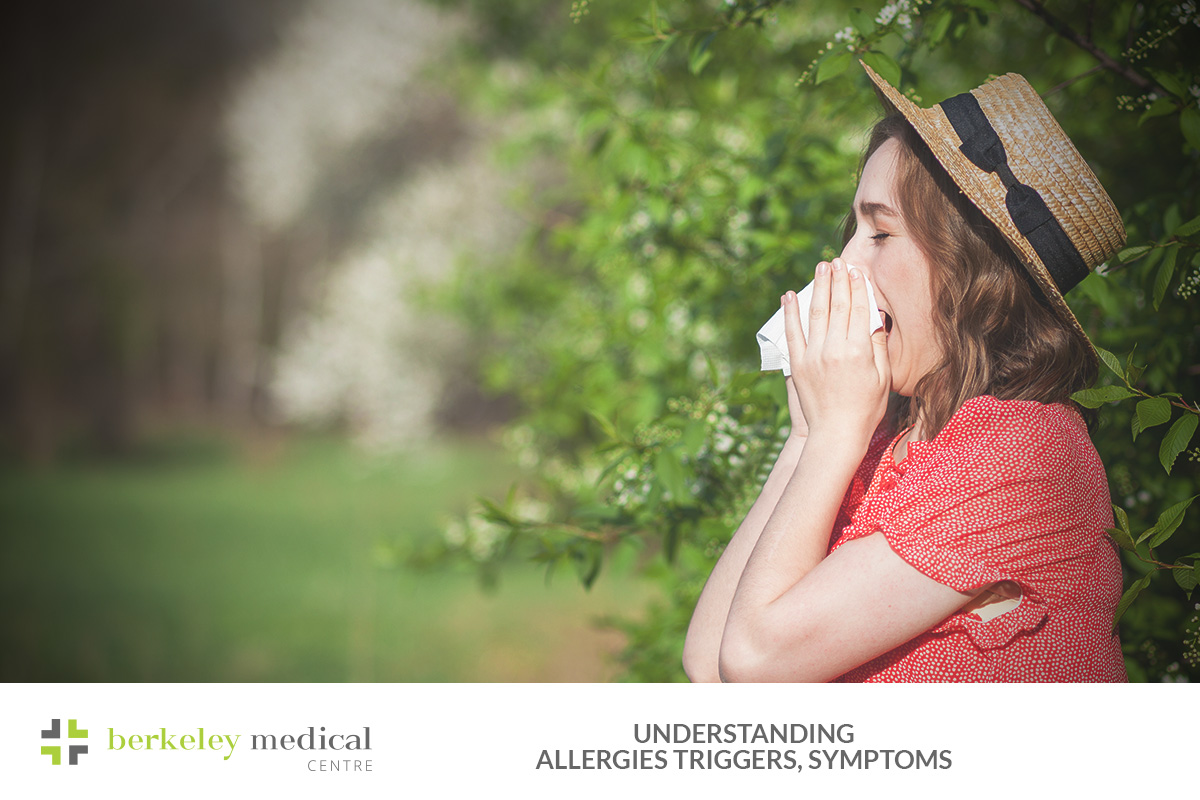Allergies are a common condition that affects many people, causing the immune system to react to harmless substances known as allergens. These reactions can range from mild discomfort to severe, life-threatening symptoms. To better manage allergies, it is essential to understand their causes, symptoms, and available treatments.
What Are Allergies?
Allergies occur when the immune system mistakenly identifies a harmless substance as a threat. When exposed to allergens like pollen, dust mites, or certain foods, the immune system releases chemicals such as histamine to fight off the perceived invader. This leads to the symptoms associated with allergic reactions.
The Immune System’s Role
The immune system’s job is to protect the body from harmful invaders like bacteria or viruses. In individuals with allergies, however, the immune system overreacts to substances like pollen or pet dander, causing an inflammatory response. This can result in a wide range of symptoms, depending on the allergen and the individual’s sensitivity.
Why Some People Develop Allergies
Several factors increase the likelihood of developing allergies:
- Genetics: A family history of allergies significantly raises the risk.
- Environmental factors: Early and repeated exposure to allergens may increase sensitivity.
- Age: Allergies often appear in childhood, although they can develop at any stage in life.
- Existing health conditions: People with asthma or eczema are more prone to allergic reactions.
Common Allergy Triggers
There are numerous allergens that can cause an immune response, with some of the most common triggers including:
- Pollen: Released by trees, grasses, and weeds, pollen is a common trigger for seasonal allergies.
- Dust mites: Tiny creatures that live in household dust can provoke year-round allergy symptoms.
- Mould: Found in damp environments, mould spores can lead to respiratory issues.
- Animal dander: Proteins found in pet skin flakes, saliva, and urine can trigger allergic reactions.
- Food allergens: Foods like peanuts, shellfish, eggs, and milk are common triggers.
- Insect stings: Some people may experience severe allergic reactions to the venom from insect stings, especially from bees and wasps.
Symptoms of Allergies
The symptoms of an allergic reaction can vary depending on the allergen and the severity of the reaction. Here is an overview of common symptoms:
Respiratory Symptoms
Respiratory allergies, triggered by allergens like pollen or dust mites, can cause:
- Sneezing
- A runny or congested nose
- Itchy or watery eyes
- Coughing
- Wheezing or difficulty breathing
These symptoms are typical of hay fever (allergic rhinitis) and asthma. They can range from mild discomfort to more severe reactions that impact daily activities.
Skin Reactions
Allergies can also affect the skin, causing:
- Hives: Raised, red welts on the skin that can be intensely itchy.
- Eczema: Dry, red patches of skin that can become inflamed.
- Contact dermatitis: Skin irritation resulting from direct contact with an allergen.
- Swelling: Localised swelling, especially after exposure to allergens like insect venom or food.
Gastrointestinal Symptoms
Food allergies can trigger digestive issues such as:
- Nausea or vomiting
- Abdominal pain or cramping
- Diarrhoea
- Swelling in the mouth or throat
If food allergies are suspected, it is crucial to identify the specific food allergen to avoid severe reactions.
Severe Allergic Reactions: Anaphylaxis
Anaphylaxis is a life-threatening allergic reaction that requires immediate medical attention. It can cause severe symptoms, including:
- Swelling of the throat, making it difficult to breathe
- A rapid or irregular heartbeat
- A sudden drop in blood pressure
- Dizziness or fainting
- Hives or significant swelling
Anaphylaxis is most commonly triggered by foods, insect stings, or medications. People at risk of anaphylaxis should always carry an epinephrine auto-injector (like an EpiPen) and seek emergency care at the first sign of symptoms.
Managing Allergies
While allergies cannot be cured, they can be managed effectively through a combination of lifestyle adjustments, medications, and, in some cases, immunotherapy.
Avoidance
The best way to prevent allergic reactions is to avoid contact with allergens. Some strategies include:
- Staying indoors when pollen counts are high and keeping windows closed
- Using air purifiers to reduce dust mites and pet dander
- Avoiding foods known to trigger allergic reactions
- Regularly cleaning damp areas to prevent mould growth
Medications
Several medications are available to relieve allergy symptoms:
- Antihistamines: Block histamine, reducing sneezing, itching, and swelling.
- Decongestants: Help reduce nasal congestion and ease breathing.
- Corticosteroids: Reduce inflammation in the airways, skin, or nose.
- Epinephrine: Used in emergencies to treat severe allergic reactions like anaphylaxis.
For individuals with mild to moderate allergies, these treatments can significantly reduce symptoms. In more severe cases, consulting a healthcare professional for guidance is recommended.
Immunotherapy
Immunotherapy, also known as allergy shots, involves exposing the body to small, controlled amounts of an allergen over time. This helps the immune system become desensitised, reducing the severity of allergic reactions. Immunotherapy can be especially useful for individuals with allergies to pollen, dust mites, or insect stings.
Lifestyle Adjustments
For long-term allergy management, making small lifestyle changes can help minimise exposure to allergens:
- Using hypoallergenic bedding and regularly washing linens
- Vacuuming frequently to reduce dust and pet dander
- Taking showers after spending time outdoors to remove pollen
- Keeping pets out of bedrooms or other areas where allergy symptoms are triggered
Conclusion
Allergies are a manageable condition, but they can significantly impact your daily life. By identifying your specific triggers and implementing strategies to avoid or minimise exposure, you can reduce the frequency and severity of allergic reactions. For more severe cases, medications and immunotherapy provide additional support.
At Berkeley Medical Centre, we offer comprehensive care for allergy sufferers, helping you identify triggers and develop a personalised treatment plan that suits your needs. With the right approach, it is possible to live a healthy, comfortable life despite allergies.







